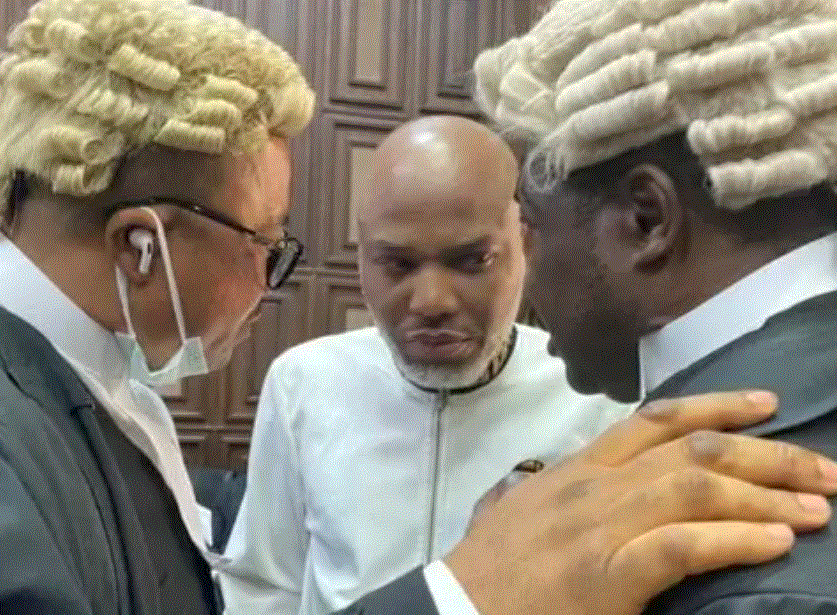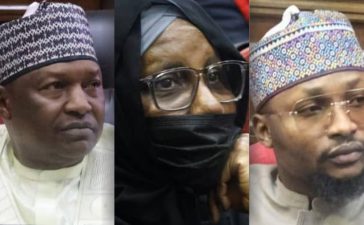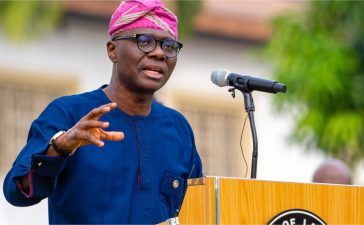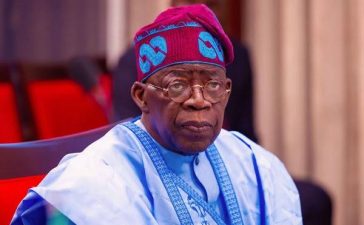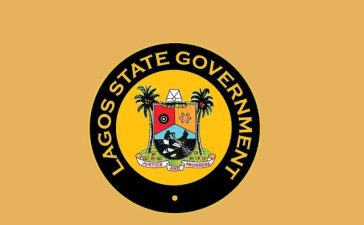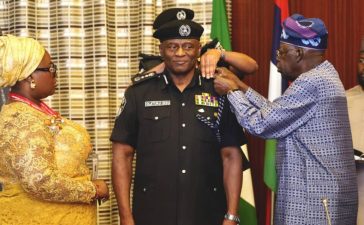A Nigerian court has once again denied bail to Nnamdi Kanu, the leader of the Indigenous People of Biafra (IPOB). Presiding judge Binta Nyako cited Kanu’s previous breach of bail conditions in 2017 as the basis for her decision, stating that granting him bail would not be in good faith.
Kanu had requested bail and also applied to be placed under house arrest or moved from the custody of the Department of State Security Services (DSS) to prison. However, Judge Nyako rejected both requests, further prolonging Kanu’s detention.
The IPOB leader has been behind bars since 2021, facing charges of terrorism, treason, and other serious offenses related to his separatist activities advocating for the independence of Biafra.
The court’s decision has sparked mixed reactions across Nigeria. Supporters of Kanu express disappointment, arguing that his continued detention violates his rights and hinders the pursuit of justice. They view Kanu as a political prisoner and advocate for his release.
On the other hand, critics of Kanu and the Biafran independence movement see the court’s decision as a necessary step to uphold national security and the integrity of the Nigerian state. They argue that Kanu’s actions pose a threat to the unity and stability of Nigeria and support the judicial process against him.
Kanu’s detention remains a contentious issue that reflects the deep-rooted tensions surrounding the Biafran independence movement and Nigeria’s efforts to maintain national unity. The case has drawn significant attention both domestically and internationally, with human rights organizations closely monitoring the situation.
Despite the court’s decision, the question of Kanu’s fate and the resolution of the Biafran issue remain unresolved, highlighting the complex challenges facing Nigeria’s quest for unity and reconciliation as Kanu’s legal battle continues. Observers say the outcome is likely to have far-reaching implications for Nigeria’s political landscape and the ongoing debate over self-determination and regional autonomy.

